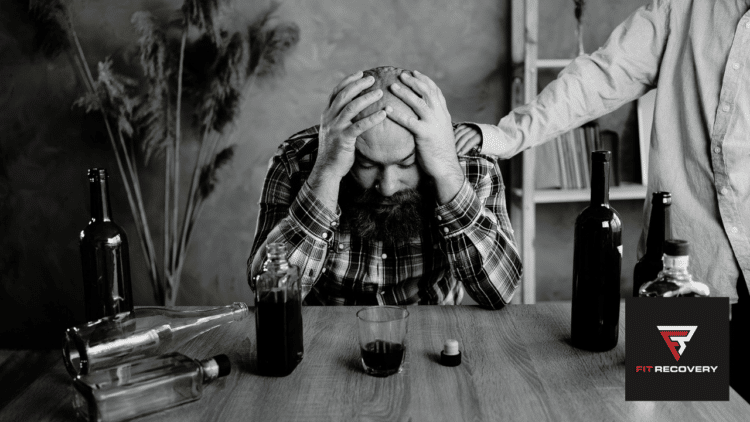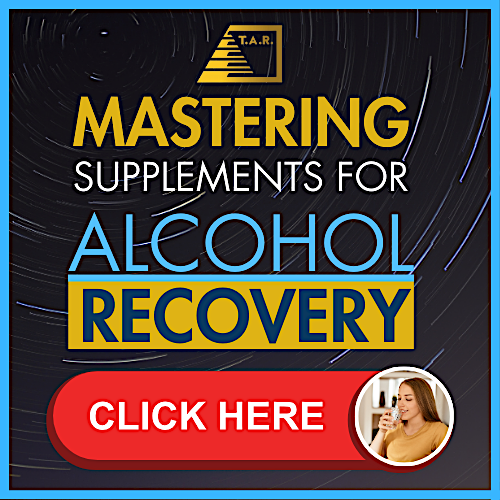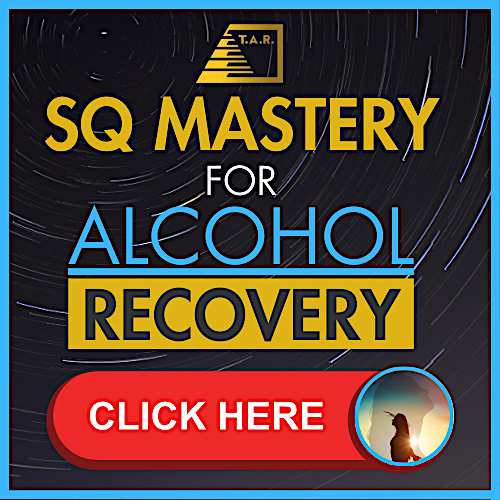
Many of us have been there, once or twice. Walking home on a Saturday night / Sunday morning way, back during our wilder and younger days, and supporting a friend who can’t handle their liquor (or at least the amount they drank, anyway) or, perhaps, holding back the long, luscious hair of a girlfriend who has her head down the house party’s the only available toilet.
You may even laugh about it now – unless, of course, it became a normal, regular occurrence every weekend, because the friend in question has always liked their alcohol way too much, and never realized that alcohol – their absolute favorite addictive substance of “choice” – just plain didn’t like them. At all.
Perhaps, after a few years of this continuous behavior – from high school into young adult life – you actually confronted them about their level of drinking, and even suggested alcohol rehab…
When you’re concerned that a close and dear friend – someone you love – drinks too much and too often, it can be hard to know exactly what to do.
Do you confront them? Do you try to have a constructive conversation about the issue?
Or do you shout at them? Even “disown” them?
Even more importantly, perhaps – a question for you:
Are you 100% sure your friend is in trouble with alcohol, and that they are becoming addicted?
Clear Signs Your Friend’s Drinking is Out of Control
If you’re unsure, relax. Here’s a list of clear signs, provided by addiction experts, to help you out, and give you the confidence in knowing you’re right – whatever happens next is simply your honest attempt to help.
If at least one of the following statements is true, you’re not wrong for wanting to discuss the issue:
- They cannot say “No” to alcohol
- They no longer have any interest in previous favorite activities
- You constantly worry about how much or how often your loved one drinks
- You make excuses for their behavior – the things they said and did
- You’ve even been hurt (physically or emotionally) or embarrassed by your loved one when they were drunk
- The amount of money they spend on alcohol concerns you – they have often asked you for a quick loan until “payday”
- If their drinking stops them from fulfilling their responsibilities, you either cover for them, or you actually deal with the practicalities of what needs to be done
- Their abnormal, sometimes unstable behavior when they drink puts you on edge and makes you nervous
- They have become secretive and, possibly, dishonest
- You’ve been tempted to call the police because your friend’s drinking is out of control and they may be a danger to either themselves or someone else, including you
Hopefully, you’re now either certain that your friend does need professional help, or you were just overreacting…
If it’s the first statement, you need to remember that you cannot solve this problem for your friend – you can’t fix it, you can’t make life easier for them, and you certainly can’t talk them out of reaching for the bottle when a craving for alcohol hits them.
Helping Your Close Friend: Be Proactive
So, bearing all that in mind, here’s exactly what you can do, and what steps you can take, beginning today:
1) Your Education
You can educate yourself about alcohol use disorder (often abbreviated to AUD), the medical term for this condition – a spectrum of alcohol dependence, ranging from mild or moderate to severe or chronic, often called “alcoholism.”
Local Resources
You can find professional resources in your area that can provide expert assistance to both your friend (and yourself)
* * * Both steps 1. and 2. will then put you in a far better place for you to attempt step 3 * * *
The Discussion
You can discuss all of these real concerns with them – their level of drinking, their behavior when they are drunk, and your worries for their future life
Your Education
No one’s asking you to become an overnight expert here, but read up on alcohol use disorder – in particular, the possible reasons behind the excessive alcohol use, such as trauma or mental illness, and the types of treatment options that there are out there.
Here is a shortlist of online resources to get you started. You can use these to become more aware and knowledgeable on the subject of alcohol use disorder (AUD):
| Substance Abuse & Mental Health Services Administration (SAMHSA) | Find online at: https://www.samhsa.gov/ |
| National Institute on Drug Abuse (NIDA) | Find online at: https://www.drugabuse.gov/ |
| National Institute on Alcohol Abuse & Alcoholism (NIAAA) | Find online at: https://www.niaaa.nih.gov/ |
| Partnership to End Addiction | Find online at: https://drugfree.org/ |
2) Local Resources
To get an idea of what local resources (addiction treatment centers, inpatient/outpatient programs, therapists, and so on) are close by, simply type “alcohol addiction treatment” and the name of the U.S. state you live in, eg. “alcohol addiction treatment Arizona” into Google Maps.
Alternatively, the Substance Abuse & Mental Health Services Administration (SAMHSA) website has a “find treatment” function, which provides a list of addiction centers, programs, therapists, etc. in specific U.S. states or within a certain mile radius from a given city or town.
Furthermore, every U.S. state government also has online information that you can use to see what substance abuse and addiction treatment resources are available to state residents.
For example, typing “alcohol addiction Arizona department of health” into your Search field will give you several links, such as:
- https://directorsblog.health.azdhs.gov/tag/substance-abuse/ and
- https://goyff.az.gov/content/arizona-substance-abuse-prevention-resource
3) The Discussion
At some point in the near future, you will need to talk to your friend about your concerns. By taking steps 1. and 2., you are now in a position to give it your best shot.
Please take note of the following points – they are designed to help to guide your conversation in the right way.
1) Conditional Support
The absolute key factors here are to offer “conditional” support – and to not be judgmental in any way whatsoever.
By “conditional,” you are saying that you will do everything within reason to support your friend.
You need to decide what boundaries your friendship will have from now on; for example:
- You will not loan them money
- You will not let them drive drunk, and
- You will not lie or make excuses for them
2) Are They Self-Medicating?
Many people use addictive substances, like alcohol, cannabis, or other drugs to “self-medicate” – to feel better about themselves or to cope with an issue specific to them.
This could even be an issue that you, as a close friend, still have absolutely no knowledge about whatsoever, because of its extremely personal nature.
Examples of specific issues include childhood trauma, domestic violence, sexual abuse, physical assault, a mental health disorder, such as depression, anxiety, bipolar disorder, or an unknown behavioral issue.
3) Open Questions
Therefore, always ask open questions, to try to learn more about any potential issues in your friend’s life. Do not ask questions that can be answered with a simple “Yes” or “No.”
4) Listen & Understand
Be ready and willing to listen. The more you listen, the more someone will feel comfortable with you and be willing to open up and speak honestly.
IMPORTANT: Any decision to seek help for excessive alcohol use has to be taken by the person with the issue. It is their decision entirely – 100%. If they do not want to change, or they feel they are not ready to change, you cannot change their mind.
At the end of the day, you may have been successful or you may not. You may even have been a little disappointed in their dismissive response. Either way, give yourself a “well done.” You have acted in exactly the right way – as any caring friend would do.
Always remember, too, that you can try again at some point in the future, and be thankful you still have the close friendship you have shared for many years.
Author
-
A decade+ addiction-free, Chris Scott, the visionary founder of Fit Recovery, passionately guides Fit Recovery 2.0 Members toward a vibrant, healthier lifestyle. Through the integration of groundbreaking nutritional strategies, transformative reframing techniques, neurolinguistic programming, and dynamic pro-recovery habit systems, he inspires individuals to boldly take charge of their lives and break free from alcohol. Chris is celebrated as a Professional Member of the Alliance For Addiction Solutions. Moreover, he is the proud author of the bestselling book "Drinking Sucks!" which stands as a vital beacon of hope for those yearning to quit drinking. Additionally, he created the celebrated online program Fit Recovery 2.0, designed to provide unwavering support for individuals embarking on their recovery journey.
View all posts Fit Recovery Founder & Director









